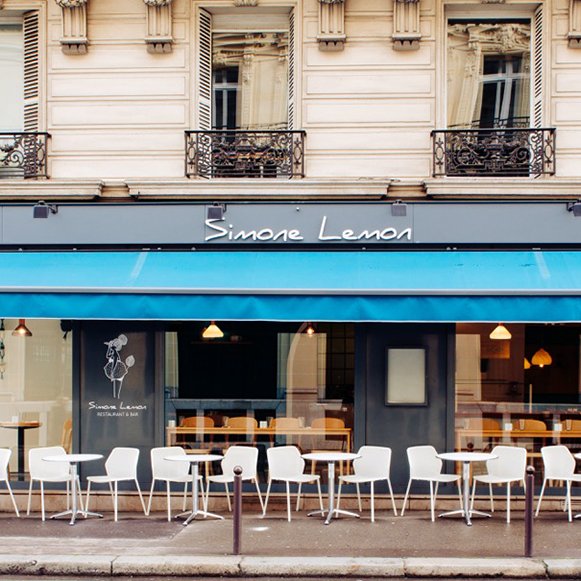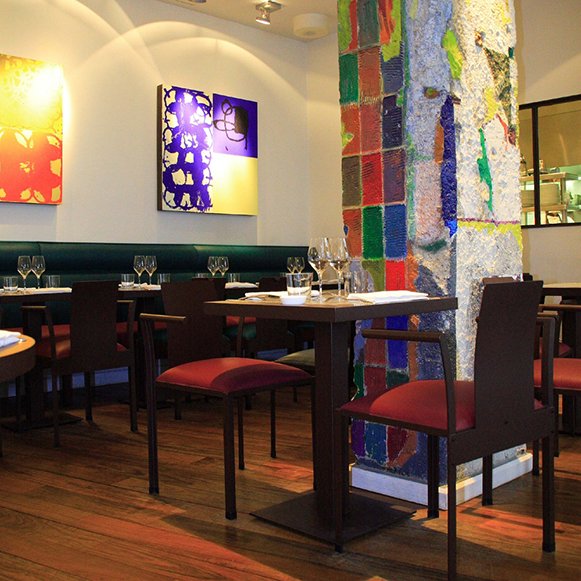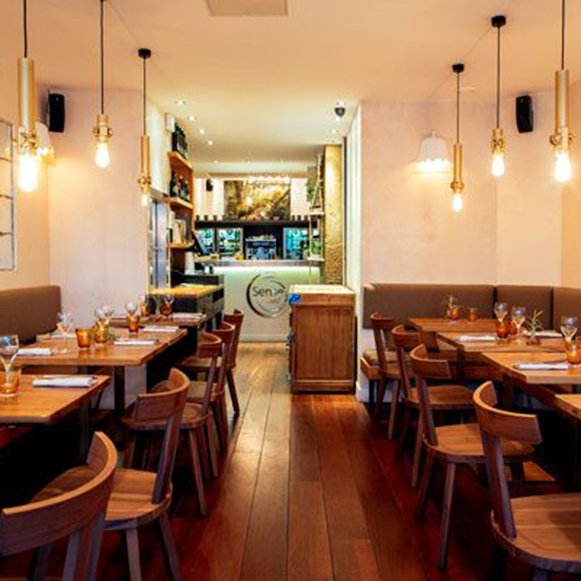- #FoodWaste
- #Local
- #NoWaste
- #Producers
- #Recycling
- #Shéhrazade Schneider
- #Sourcing
- #SustainableDevelopment
- #UglyFruitsAndVegetables
They are odd-shaped, odd-sized or ugly, and considered unfit for human consumption, but these fruits and vegetables can indeed be used and cooked, inspite of their weird looks!
Chef Shéhrazade Schneider has decided to use only these products that traditional standards reject. They are no longer trashed, and find a new life in her creative and tasty cooking at her restaurant Simone Lemon in Paris. She has thus created a new model of sourcing, a model in which nothing is wasted, from field to table.

Shéhrazade Schneider grew up “in Morocco, where food waste does not exist. In this country, selecting fruits and vegetables according to size or shape is simply unheard of, and there is always a chicken around to peck waste.” Elodie Boucher grew up in France, in a family that wasted a lot of food… The shocking realization gave rise to her environmental concern.
Together, as they were students in the same Business School (ESCP Europe), Shéhrazade and Elodie chose to write their Master’s thesis on food waste. This is how they met several operators in the food industry: producers, distributors, retailers, public institutions, etc. They then realized that every year, “40% of the fruits and vegetables grown in France do not get to end users.” Even though they are not up to standards, because they are too small or too big, imperfect or twisted, or because they have the slightest defect, these fruits and vegetables look quite attractive to Shéhrazade and Elodie…
A genuine love story between beauty – the cook – and the beasts – ugly vegetables
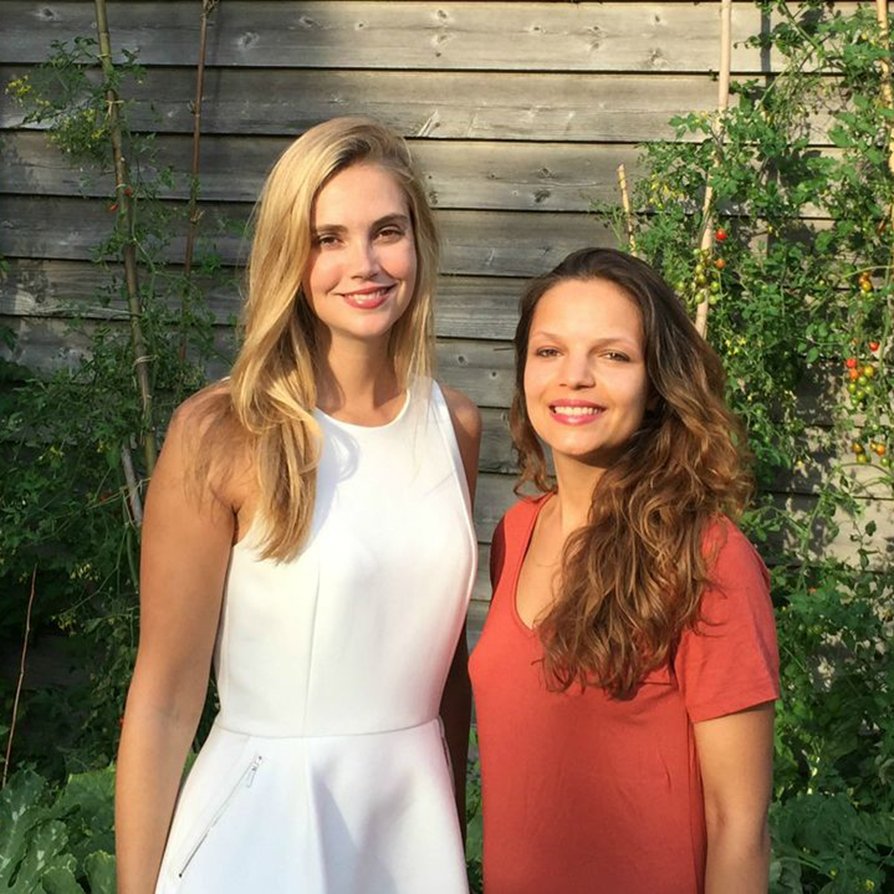
They then asked themselves how they could recycle these products. Their answer: “by cooking them!” The daughter and granddaughter of Moroccan restaurateurs, Shéhrazade started a catering business in Paris with Elodie.
But finding ugly fruits and vegetables proved to be more difficult than they had imagined. The producers they contacted did not understand their approach: “Why would you want to recycle these? Nobody wants them!” Convincing them was not easy. But eventually no-one could resist Shéhrazade’s enthusiasm when she talks about ugly veggies. “A true passion, and the utmost respect for the product, regardless of its looks.”
The producers also had to be offered a solution to get rid of these products that were originally going to waste. Shéhrazade and Elodie hired a logistics coordinator who tours the farms they have selected and brings them 150 kg of fruits and vegetables every week.
They now work “with around 15 producers who have been found in the Paris street markets and all around the Paris region, depending on seasons and products.”
The rest of the products are local or come from France exclusively. “The fish comes from Western Brittany,” where they buy surplus at low prices, coffee comes from Maison Caron in Chatillon (and in accordance with their zero-waste policy, coffee grounds are recycled as fertilizer to grow mushrooms).
As much as Shéhrazade and Elodie loved their catering activity, for private celebrations (weddings or birthday parties) or for public events (Festival Peacock), they sometimes felt that they were spending too much time in their stock room or in their delivery truck. This is why they decided to set out on a new adventure: creating their own restaurant.
From field to plate, zero waste

Their restaurant Simone Lemon opened in Paris in 2015. Shéhrazade is in the kitchen and Elodie takes care of managing the place.
It works like this: diners choose from a 100%-home-made buffet, all straight from Ile-de-France producers.
By using non-standard products, Shéhrazade and Elodie support sustainable farming and limit food waste on the supply side. But they also curb it on the consumer side: they do not offer one-size-fits-all portions, but clients choose from a set-price buffet (€2.80 per 100 grams) depending on how hungry they feel.
Shéhrazade has always used all of evey product for her own cooking, and she now thoroughly enjoys doing the same as she cooks for others. She cooks according to seasons, weather, and supply (which depends on the latter). And these constraints force her to be more creative. Winter recipes can be a bit challenging, as she has to make do with the same old leeks, potatoes and cabbage…
But the results speak for themselves: her customer base is a mix of regulars, activists and enthusiasts, every day of the week and for the Sunday brunch. Drawing inspiration from her ugly veggies, from cooking blogs such as « Un déjeuner au soleil », from what she reads and from many experiments in the kitchen, this spring Shéhrazade offers, for instance: Avocado, cucumber and basil green gazpacho; Popeye salad with radish, raw spinach, gorgonzola and cranberries; Grated carrot and courgette salad with coriander and citrus fruit vinaigrette; Indian-style shoulder of lamb; Roasted trout filet in béarnaise sauce; Raisin and pecan carrot cake; Strawberry and basil tiramisu; Raisins, squash and sunflower seeds, or Black chocolate and grilled almonds granola, etc.
While cooking such fruits and vegetables can prove a bit complex (as it requires to think ahead a little more regarding recipes, and it makes peeling and dicing more time-consuming), Shéhrazade and Elodie want to “start a virtuous circle that benefits all: the providers who can sell all of their products, and the consumers who can get quality food for a lower price.”
Which proves that, as regards cooking, one can always invent new models – and that you cannot judge a vegetable by its looks – the proof is definitely in the eating!

- June 2013 : Served her first 1,000 meals for the 4-day Peacock Festival
- December 2013 : Master in Management from ESCP Europe business school
- March 2014 : Successfully closed fundraising operation
- June 26, 2015 : Bought location to create the restaurant
- October 26, 2015 : Simone Lemon restaurant opened
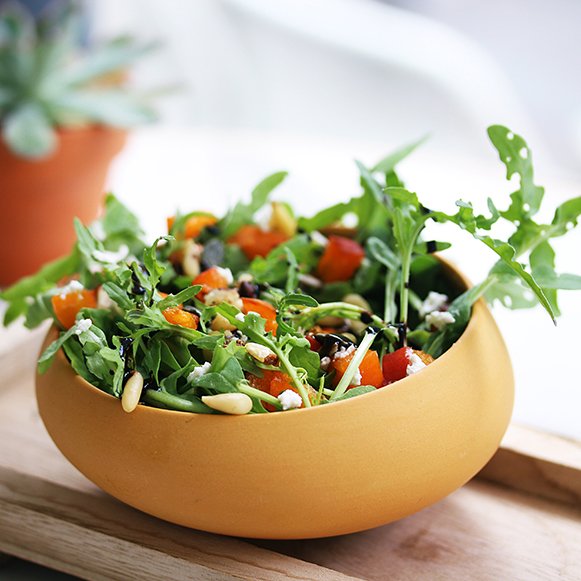
Find the recipe

